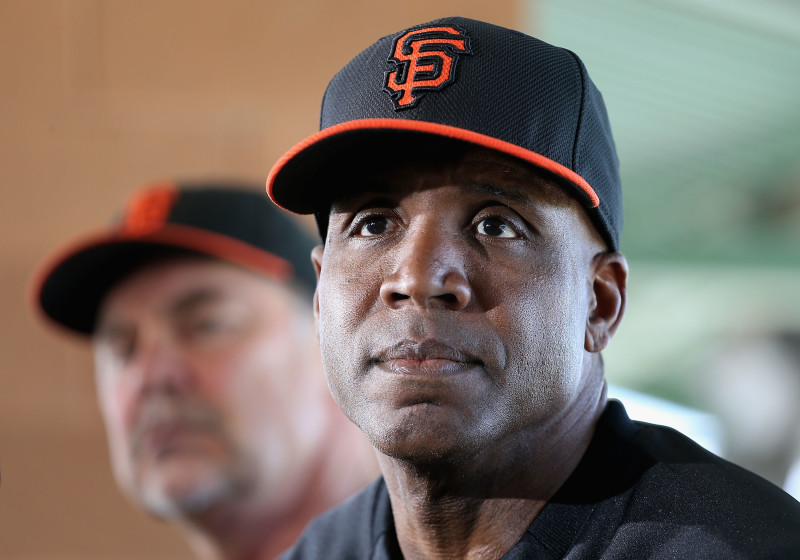Federal prosecutors' long, long legal pursuit of former San Francisco Giants slugger Barry Bonds is officially over.
Melinda Haag, the U.S. attorney for Northern California, filed a brief notice with the 9th U.S. Circuit Court of Appeals on Tuesday morning that the government won't attempt to take its case to the Supreme Court.
Bonds was convicted in 2011 of obstruction of justice in connection with a probe into his alleged use of performance-enhancing drugs. The conviction was first upheld by a three-judge 9th Circuit panel, then struck down by an en banc panel of 11 judges. It's that last decision the Justice Department has decided not to appeal to the high court.
Prosecutors investigating BALCO, a Peninsula sports lab that had distributed banned substances to elite athletes, had charged Major League Baseball's all-time home-run record holder with perjury and obstruction in connection with his 2003 testimony to a federal grand jury in San Francisco. They said Bonds had lied when he denied using steroids and had tried to mislead the grand jury with an evasive answer about his drug use.
The jury failed to reach a verdict on three perjury counts, but convicted him on the obstruction charge because of his "I was a celebrity child" response to a question about whether he'd used injected substances. The key exchange:
Q: Did Greg [Anderson, Bonds' trainer] ever give you anything that required a syringe to inject yourself with?
A: I’ve only had one doctor touch me. And that’s my only personal doctor. Greg, like I said, we don’t get into each others’ personal lives. We’re friends, but I don’t — we don’t sit around and talk baseball, because he knows I don’t want — don’t come to my house talking baseball. If you want to come to my house and talk about fishing, some other stuff, we’ll be good friends. You come around talking about baseball, you go on. I don’t talk about his business. You know what I mean?
Q: Right.
A: That’s what keeps our friendship. You know, I am sorry, but that — you know, that — I was a celebrity child, not just in baseball by my own instincts. I became a celebrity child with a famous father. I just don’t get into other people’s business because of my father’s situation, you see.
The 11-judge panel ruled 10-1 that the statement did not constitute obstruction of justice.
